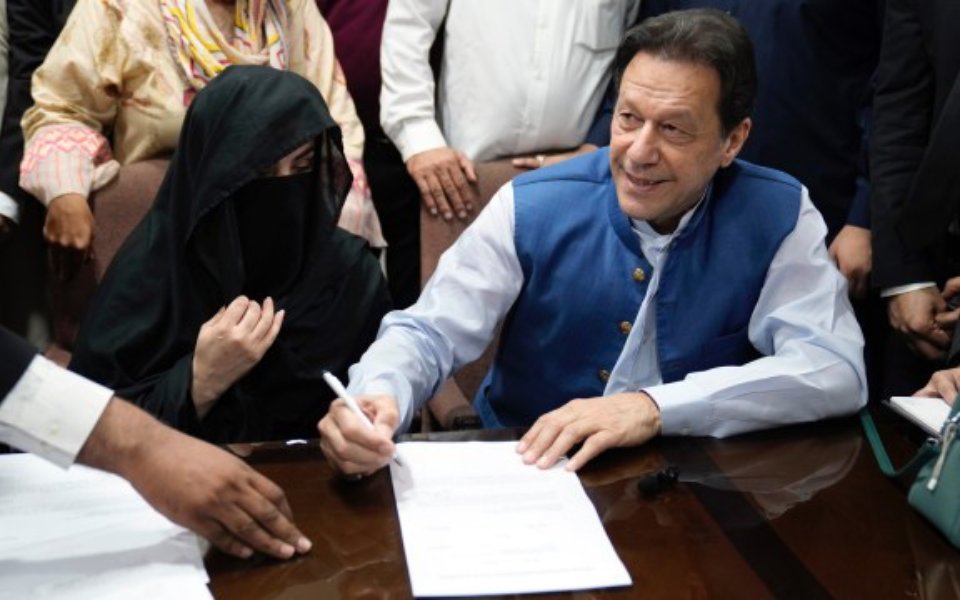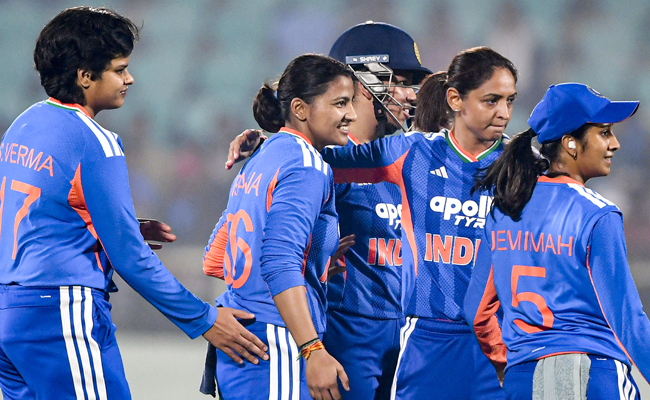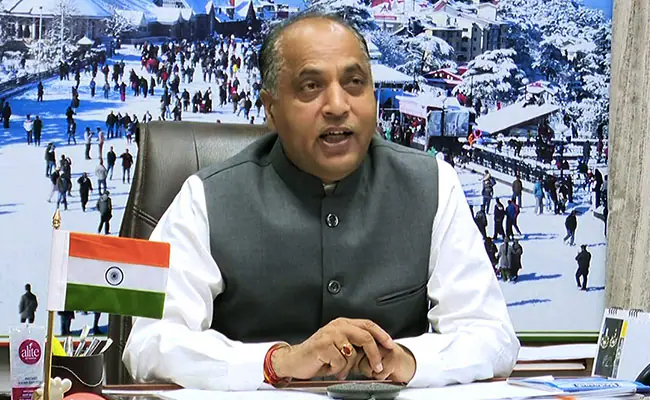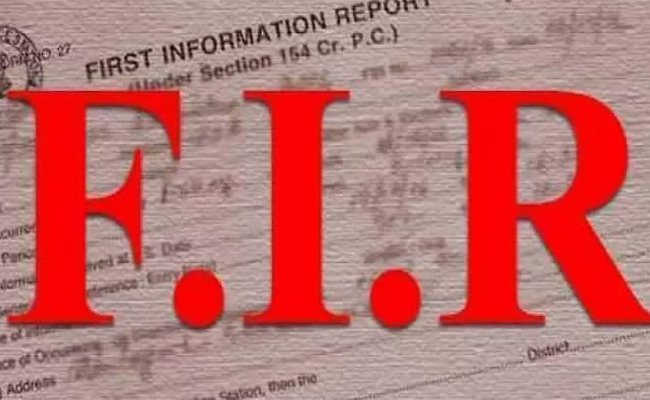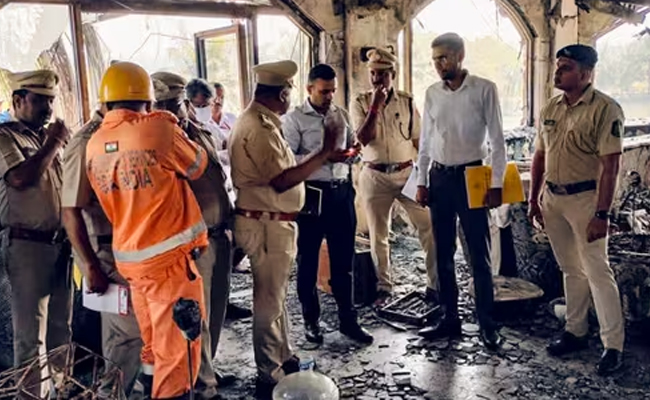Islamabad, Apr 2: Pakistan's jailed former prime minister Imran Khan on Tuesday said his wife and former first lady Bushra Bibi was poisoned while incarcerated at his private residence here which was turned into a sub-jail, emphasising that the army chief should be held responsible if she is harmed.
The Pakistan Tehreek-e-Insaf (PTI) leader during the hearing of the 190 million pound Toshakhana corruption case in Adiala jail informed Judge Nasir Javed Rana that there had been an attempt to poison the former first lady and added that she had marks on her skin and tongue as a side effect of the "poisoning".
“I know who is behind it," The Express Tribune newspaper quoted the 71-year-old PTI founder as saying.
Khan said that if any harm came to Bushra, the Pakistan Army chief (General Asim Munir) should be held responsible as members of an intelligence agency were controlling everything at his Bani Gala residence in Islamabad and Adiala jail in Rawalpindi.
Khan further urged the court to order 49-year-old Bushra's medical examination by Dr. Asim of Shaukat Khanum Hospital, adding that he and the party did not trust the doctor who examined her earlier.
He also urged to have an inquiry into the matter of Bushra’s alleged poisoning.
Following the former premier’s request, the court directed Khan to submit a detailed application about the former first lady's medical examination.
Talking to the media after the hearing, Bushra said rumours regarding her being an "American agent" were circulating in the party and that she was poisoned through a popular toilet cleaner.
She said "three drops" of a popular toilet cleaner were added to her food, claiming that a person's health deteriorates after a month of consumption.
"My eyes swell up, I feel pain and discomfort in my chest and stomach and food and water also taste bitter. Some suspicious substance was mixed in honey earlier and now the toilet cleaner was mixed in my food," claimed the former first lady.
"I was told by someone in jail about what was added to my food. I will not reveal any names," she said.
Bushra informed the court that she had been kept decently at the Bani Gala sub-jail but added that she was not allowed to open the windows for a while.
Earlier, PTI claimed Bushra was fed "poisonous food" during her incarceration, asserting that she had been in severe pain.
A PTI spokesperson expressing concerns regarding "serious threats" to Bushra Bibi's life while in detention said in a statement: "Bushra's health and life are being seriously endangered by the denial of her constitutional right to medical examination."The spokesperson further alleged that Bushra Bibi's family had been barred from visiting her, a move they deemed to be a violation of both the Constitution and jail regulations.
The statement asserted the restriction was part of a "deliberate plan" to cause harm to her.
Earlier in January, Khan and Bushra Bibi were sentenced to 14 years of jail in the Toshakhana corruption case about the illegal sale of state gifts which the former premier received during his term.
Toshakhana is a department under the cabinet division in Pakistan that stores gifts and other valuables received by officials. The officials must report all the gifts they receive to the department.
Khan was lodged in Adiala Jail in Rawalpindi while Bushra Bibi was incarcerated at Khan's Bani Gala home after it was declared a sub-jail.
On Bushra Bibi’s conviction, Khan’s PTI party had said that she had no link to the case and her conviction was only an effort to further pressurise the former prime minister.
Meanwhile, the Chairman of PTI, Barrister Gohar Khan said the former First Lady of Pakistan, Bushra Bibi, is being politically victimised.
"She is being kept in isolation, there are serious concerns of her being poisoned. Chairman Imran Khan has expressed similar concerns regarding his wife’s health. The powerful circles of the country will be held accountable for any misadventure," the party quoted him as saying in a post on X.
Since his removal from power in a no-confidence motion in April 2022, the cricketer-turned-politician has been convicted in at least four cases, including the cipher case.
Let the Truth be known. If you read VB and like VB, please be a VB Supporter and Help us deliver the Truth to one and all.
Visakhapatnam (PTI): Shafali Verma hit a blistering unbeaten 69 as India made short work of a paltry target to outclass Sri Lanka by seven wickets in the second Women’s T20 International here on Tuesday.
India now lead the five-match series 2-0 after another one-sided victory, having restricted Sri Lanka to a modest 128 for 9 through a collective display of disciplined bowling from the spin trio of seasoned Sneh Rana, ably complemented by young spinners Vaishnavi Sharma and Shree Charani.
During the chase, vice-captain Smriti Mandhana (14) fell cheaply but Shafali, enjoying new found confidence after a stellar show in the World Cup final, sent the bowlers on a leather-hunt during her 34-ball knock, winning it for her team in just 11.5 overs.
The hosts have now completed back-to-back successful chases within 15 overs which speaks volumes about the unit's sky-high confidence.
Shafali's innings had 11 punchy boundaries apart from a maximum.
The floodgates opened when left-arm spinner Inoka Ranaweera bowled a few flighted deliveries and Shafali would step out everytime to hit her over extra cover. Her footwork against slow bowlers was immaculate whether stepping out to loft the ball or rocking back to punch or pull.
Seeing her confidence, the newly appointed Delhi Capitals skipper Jemimah Rodrigues (26 off 15 balls) also attacked as the duo added 58 runs in just 4.3 overs.
By the time Rodrigues was out trying to hit one six too many, the match as a contest was over. Shafali completed her half-century off just 27 balls and completed the formalities in a jiffy.
Earlier, off-spinner Rana, who got a look-in after Deepti Sharma was ruled out due to fever, showed her utility keeping the Lankan batters under tight leash with figures of 1 for 11 in 4 overs, including a maiden which certainly is a rarity in T20 cricket.
Charani, who made an impression during India's ODI World Cup triumph, took 2 for 23 in her quota of overs, while Vaishnavi after an impressive debut in the opening encounter, finished with 2 for 32, not letting the Islanders get easy runs in her second spell.
The last six wickets fell for just 24 runs, but what stood out during India’s bowling effort was their superb ground fielding. After a patchy show in the previous game, the improved sharpness in the field resulted in three run-outs.
Sri Lankan skipper Chamari Athapaththu (31 off 24 balls) looked in good nick as she deposited length deliveries from seamers Kranti Gaud and Arundhati Reddy over the ropes but it was Rana, who kept her quiet by repeatedly pitching on good length.
Unable to manoeuvre the strike and with the big hits suddenly drying up, Athapaththu chanced her arm at another delivery in which Rana had shortened the length slightly.
Not having transferred the weight into the lofted shot, Athapaththu's hoick was pouched cleanly by Amanjot Kaur at long-off.
This was after Athapaththu's opening partner Vishmi Gunaratne (1) had offered a simple return catch to Gaud.
Hasini Perera (22 off 28 balls) and Harshitha Samarawickrama (33 off 32 balls) did stitch a stand of 44 but they could never set the tempo against the Indian spin troika.
Once Hasini offered a tame return catch off a Charani full-toss, Sri Lankans never recovered and lost wickets in a heap towards the end.

